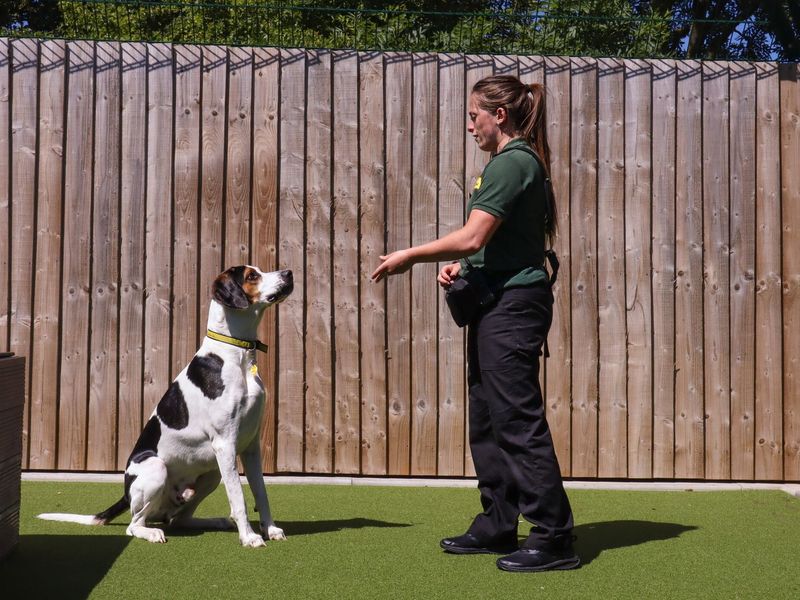How to train your dog to stay
Training your dog to stay in a position or place until you return to them is a very useful skill. Discover how.

Training your dog to stay in a specific position or place until you return to them is a very useful skill. It can come in handy when you need your dog to stay in a certain place, for example, to keep them out of the way when you’re doing gardening or cooking.
'Stay' can be a challenging thing for dogs to learn because we’re asking them to remain at a distance from us for an extended period, regardless of whatever distractions might be happening.
That’s tricky to do, especially when we spend so much time with our dogs and teach them to come to us and pay us attention when we ask.
But every dog can learn to stay in one place, especially if training is always fun and rewarding, using positive reinforcement and progressing very gradually so our four-legged friends can be confident at every step.
How to train your dog to stay
Prepare your pooch
Set your dog up for success by starting your training in a quiet, familiar place like your home or garden. The fewer distractions, the better.
Stay by their side
Ask your pup to sit, or lie down if they find this more comfortable. Reward them with a treat immediately. Encourage them to stand back up, and then repeat.
This stage rewards them for being in the position you want them to be when you start moving away from …
Wait for a second
Ask your dog to sit again and wait one second before rewarding them with a treat. Then encourage them to move about and have a brief break, before repeating.
Gradually build up the time between asking them to sit and rewarding them, until your dog can stay sitting …
Add the cue word “stay”
Now you can add the word “stay”. Ask your dog to sit, then say “stay” and wait five seconds before rewarding them with a treat.
Then encourage them to move away and have a short break. Only say “stay” once, don’t repeat yourself as you want your dog to be able to …
Build up the time that your dog stays still
Gradually continue to build up the time that your dog stays sitting still. Once your dog can sit still for 10 seconds, start to make the length of time you ask them to stay still before rewarding them completely unpredictable.
For example, ask for three seconds …
Start to move away from your dog
Ask your dog to sit and “stay”. Just lean slightly to the side, away from them, to get them used to you moving your body away from them. Go back to your starting position and reward them. Encourage them to stand up and move around for a short break, and then repeat.
Always return
Always return to your dog before you reward them. Your dog should feel that the position they are staying in is really rewarding, as it always results in you returning and giving them a treat.
Make sure you reward them when they're in the position you want them to …
Add different directions
Gradually build up how far and in what direction you move. As with building up the duration, we want to be unpredictable. For example, you might practice moving one step to the side, then two, then one step backwards or on the diagonal, then four steps ahead.
This …
Add distractions
You should now understand the principles and process of teaching your dog to stay, and they should be good at doing this within your home, so it’s time to take it on the road!
When you start training, your dog may think 'stay' only means ‘stay’ inside the house or …
Choose your locations wisely
Build distractions in gradually by carefully choosing the locations you practice in and how busy they are, especially as it becomes much harder for your dog to stay still the more activity that is happening around them.
Start in the garden, then an empty park, then …
Remember, there is no need to rush! Building up the difficulty slowly and setting your dog up for success should mean your dog’s behaviour is more reliable.


